Beyond the Equations: Exploring the World of Physics at the CUWiP Conference
Astrophysics student Lauren recently had the opportunity to spend three days in the outskirts of Coventry to attend the Conference for Undergraduate Women and Non-Binary Physicists, hosted by the University of Warwick.
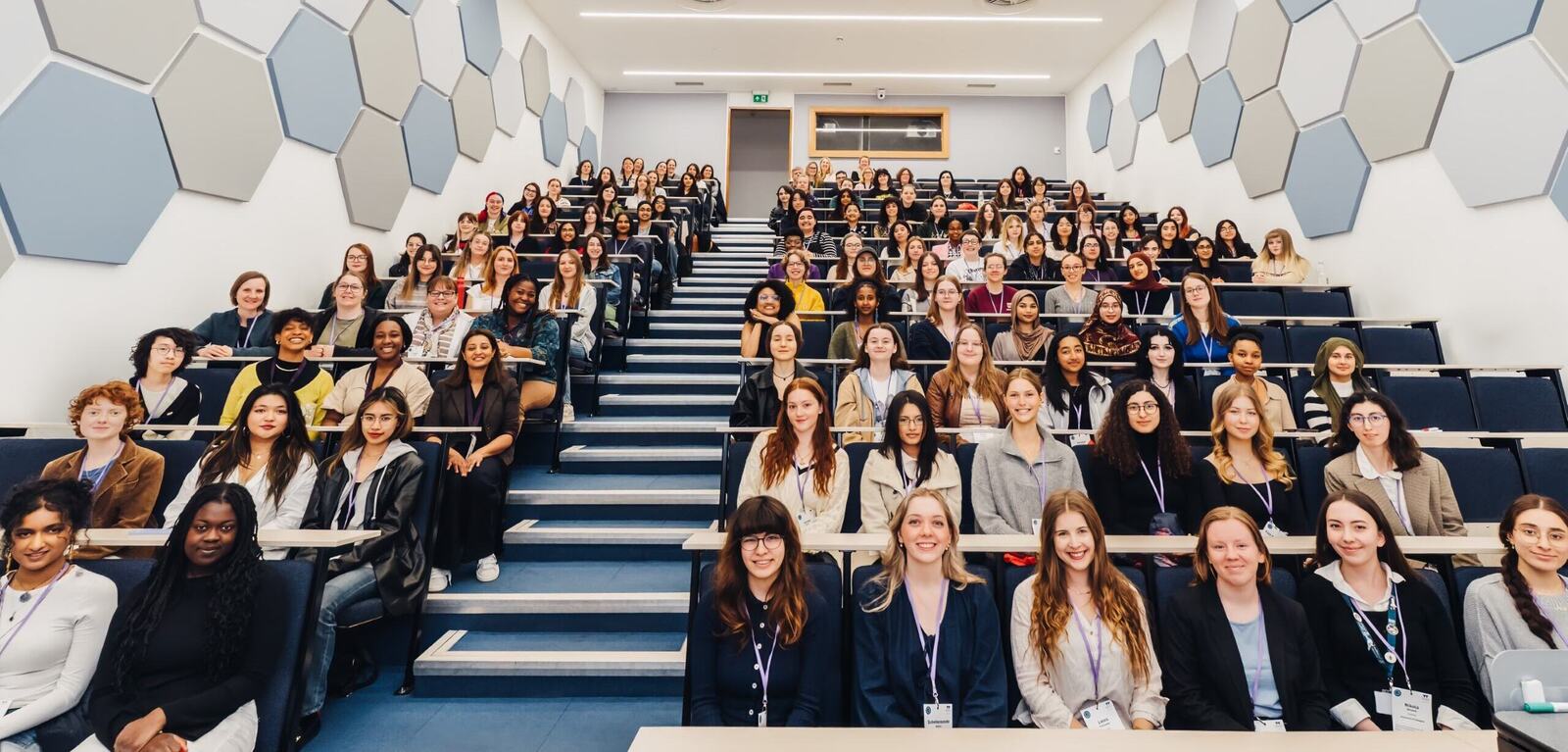
Thanks to sponsorship from the Gender, Equality, Diversity and Inclusion (GEDI) committee within the School of Maths and Physics, I was able to attend this conference which brought together like-minded physicists, inspirational scientists and creatives from across the world and deepened my appreciation for the breadth and diversity of the physics community. In this blog I will reflect on my experience and share pictures of my time at this conference!
Conference overview
Over the course of three days, I engaged with students, academics, and professionals whose work and ideas not only showcased the breadth of knowledge within the field but also the many directions that a physics degree can take you.
The conference consisted of keynote speakers, panel discussions, lectures, and tours of the facilities that Warwick has to offer. The talks were wide-ranging, spanning topics such as academic career development, the versatility of physics degrees, and the intersection between creativity and scientific discovery.
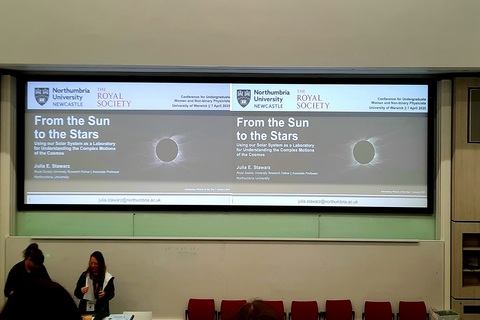
One of the lectures that took place over the three-day conference
"Thanks to sponsorship from the Gender, Equality, Diversity and Inclusion (GEDI) committee within the School of Maths and Physics, I was able to attend this conference which brought together like-minded physicists, inspirational scientists and creatives from across the world."
The conference was opened with a keynote speech from Dr Julia Stawarz, who currently holds a prestigious “Royal Society University Research Fellowship” in Northumbria University. Her speech focused on her journey to where she is today and her journeys across the world for her award-winning research on plasmas within our Solar System using ESA and NASA spacecraft missions.
Throughout the first day of the conference other talks touched on recent advancements in the field of medical physics and on the importance of incorporating art into scientific research to captivate a wider audience of any age and background such as using virtual reality, art sculptures and photography for example.
This tied in nicely with lectures on the following days consisting of topics such as “Media and Communications” from BBC broadcaster Rosie Eaton who shared not only why it’s important to get involved with media, but also how to communicate your research in an accessible way; such as using everyday examples to explain complex topics and how incorporating sound effects and dialogue snippets can convey your message over radio/audio platforms.
Throughout the conference there were plenty of panel discussions, providing us with the opportunity to ask questions and gain insight and perspective from the panellists. This included a session with PhD students to allow us to get a feel for daily life and expectations of postgraduate students. Another discussion was held on careers in industry with physics alumni from Warwick who have gone into areas such as science policy with UNESCO, editorial roles in science journals, synthetic diamond development and data science, showcasing the flexibility of a physics degree.
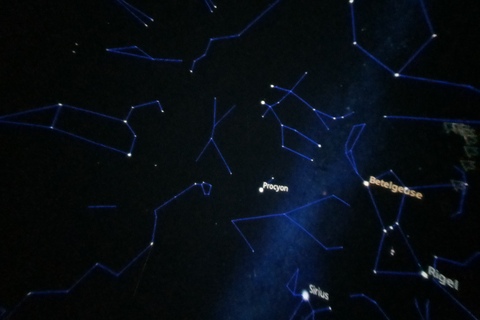
Inside Warwick’s inflatable planetarium dome show featuring constellations in the night sky
Conference goals
One of the main goals of the CUWiP conference was to bring together physics undergraduate students from diverse backgrounds, make lasting connections while promoting representation in physics. With plenty of opportunities to network and connect over team building exercises (and over lunch of course!), group discussions lead by the Equitea Group in Warwick’s Astrophysics department allowed for us to brainstorm inclusive practices in academia and shared resources for equity and inclusion such as how to set up your own Equitea group at your own university and topics they have covered in previous meetings.
Equitea is a forum designed to discuss issues surrounding equity, diversity, and inclusion within astronomy, physics, and the broader STEM community. The initiative was established to help create a more inclusive environment for all staff and students by encouraging open conversations about the diverse experiences of individuals in academia. Sessions have covered a wide range of topics, including but not limited to mental health, systemic barriers in academia, gender equality, ableism, LGBTQ+ inclusion, and more.
In fact, the Astrophysics Research Centre (ARC) here at Queen’s has already adopted its own Equitea group and hosts sessions every semester! The Blackett Family Lab, a collective set up to connect, inspire and celebrate the work of Black physicists in the UK, shared the story of their mission to diversify perceptions and promote representation of physicists. In an interactive session with members of the BLF physicists who work both inside and outside of academia, shared their journeys exploring their own sense of belonging in the workplace and invited us to discuss and imagine where we will go after graduating and finding our place as a physicist.
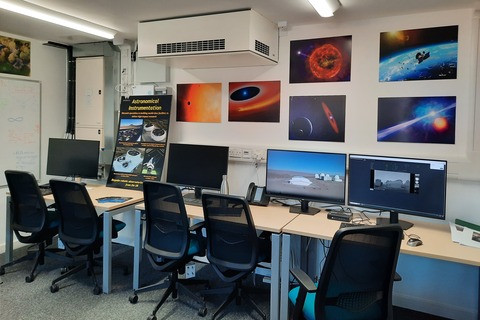
Research desks within the Marsh Observatory
"The Astrophysics Research Centre (ARC) here at Queen’s has already adopted its own Equitea group and hosts sessions every semester!"
The opportunity to tour the university’s research facilities provided an invaluable behind-the-scenes look at how experimental physics and observational astronomy are conducted at Warwick. Seeing working labs and speaking with researchers about their ongoing projects demonstrated where a physics degree can take you after undergraduate studies and its real-world applications. It was particularly inspiring to witness the scale, collaboration, and ambition that define current research efforts in academia.
Memorable moments
One of the most memorable aspects of the conference was meeting Dame Jocelyn Bell Burnell, a multi-award-winning physicist from Northern Ireland. In 1967, while still a graduate student at Cambridge she discovered pulsars, highly magnetised rapidly rotating neutron stars! She uncovered the cosmic source of these radio signals emitted from dying stars revolutionising the field of astronomy. Joining us for the conference dinner, it was an incredible opportunity to speak with an inspiring female physicist and hear all about where her research has taken her and her continued passion for increasing representation in physics.
"One of the most memorable aspects of the conference was meeting Dame Jocelyn Bell Burnell, a multi-award-winning physicist from Northern Ireland."
The conference dinner was held in St Mary's Guildhall in Coventry. With beautiful stained-glass windows and sculptures, this historic building holds fascinating tales from the medieval era. Over a lovely dinner, I had the opportunity to meet and connect with like-minded physics students, share our current research, share advice, discuss our interests, and of course just have fun getting to know each other.
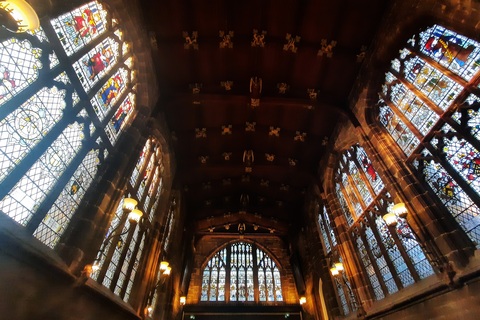
St Mary’s Guildhall in Coventry – location of conference dinner
The value of conferences
This conference offered more than just a series of lectures, it provided a space to think critically about what it means to be part of the physics community as a woman and where my degree can take me. It prompted questions about my own path: How can I contribute meaningfully, not only through academic work but through collaboration, communication, and creativity? How can we encourage other underrepresented groups to pursue physics?
"It provided a space to think critically about what it means to be part of the physics community as a woman and where my degree can take me."
Conferences like this, especially those tailored to undergraduates, play a vital role in education and inspiring young physicists by connecting them to the larger ecosystem of research, mentors, peers, as well as opportunities and encourage us to see that physics is not only a subject to study but as an ever evolving, dynamic discipline shaped by people, ideas and purpose.
If you’re interested in staying up to date on physics events within UK & Ireland check out the Institute of Physics (IOP) website.
Find out more
A Reflection on My Experience as a Course Rep
Lauren McGinleyAstrophysics | Undergraduate Student | Donegal, IrelandMy name is Lauren and I'm a physics student taking the astrophysics pathway. Originally from Donegal, I moved into Queen's accommodation for my 1st year and now live in a flat with my uni mates. Outside of lectures I enjoy archery, pub quizzes and jewellery making and art. |
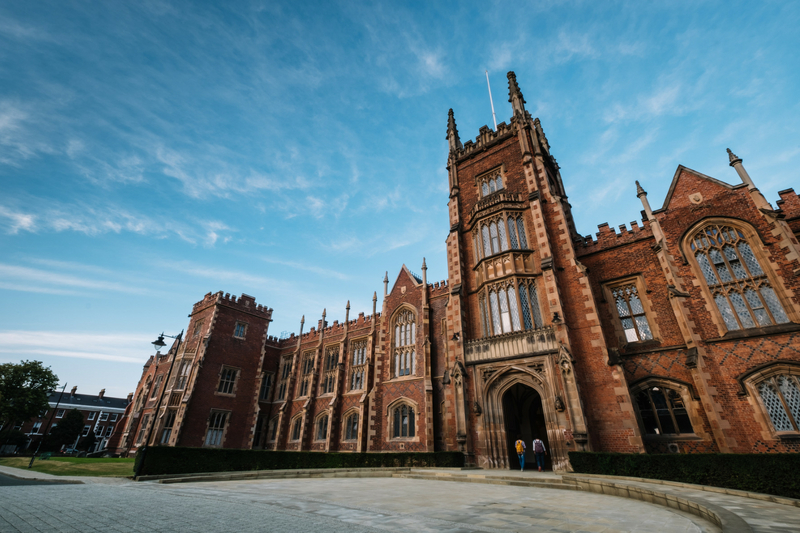 |